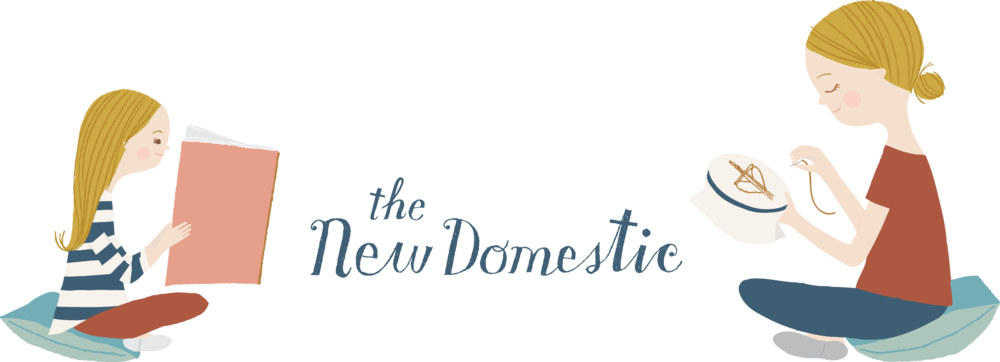“The consideration of out-of-door life, in developing a method of education, comes second in order; because my object is to show that the chief function of the child—his business in the world during the first six or seven years of his life—is to find out all he can, about whatever comes under his notice, by means of his five senses; that he has an insatiable appetite for knowledge got in this way; and that, therefore, the endeavour of his parents should be to put him in the way of making acquaintance freely with Nature and natural objects; that, in fact, the intellectual education of the young child should lie in the free exercise of perceptive power, because the first stages of mental effort are marked by the extreme activity of this power; and the wisdom of the educator is to follow the lead of Nature in the evolution of the complete human being.”
i first began informally homeschooling heron years ago, when she was preschool age, & i made too much of it. now with child number three, i am taking it more slowly. the more i read, & study my own children, the more i see how much children need play in the early years. in the charlotte mason tradition, the early years are meant to be a quiet growing time--a time for play, much time in nature, & good habit formation. if any formal academics are introduced, it is through play--playing with letters, playing with numbers, but nothing serious, for, as maria montessori said, "play is the work of the child," and i am just beginning to understand the power of this. (though charlotte mason and maria montessori had quite different approaches to education, i have drawn heavily from both of their philosophies, and have found a common intersection to be learning through play in the early years, and creating a lovely, enriching learning environment for children through thoughtful & beautiful materials)
with this presupposition, i no longer begin any formal academics with my children until kindergarten, and even then, it is more play than school. last summer, when we were making the decision to homeschool heron rather than place her in a private, classical christian school, i was impressed by several articles i read about scandinavian schools (here is one of those articles; another one is here), particularly in finland, where compulsory schooling doesn't start until age 7. ages 5 and 6 are still considered "pre-school", and any formal education under 7 (though not mandatory), emphasizes play, time outdoors, socialization, and handicrafts. finnish children of all ages spend more time outside, less time in the classroom, and less time in school, period, than american children. and yet... by high school, finnish students are earning the top scores in the programme for international student assessment (PISA), a standardized test given to 15-year-olds in more than 40 countries worldwide. i read many other articles in that season, observed my own children, and talked to other homeschooling friends about when they'd started formal schooling with their children. since heron was still only 6, thanks to the wise counsel of my friend beth, i made the decision to delay first grade until she was 7 (she turned 7 this past may 29), and we re-claimed some time to play. now she is ready, and leaping forward, and i am so glad we waited.
but... if you are just starting your homeschooling journey, or have young children, & don't know where to begin...
- first, ENJOY these years. they will go by fast. if your child is a later reader than his/her public school peers, do not fear. they will zoom ahead when they are ready.
- keep lessons short, 15-20 minutes per subject.
- go on adventures! spend time outside, even on the yuckiest days.
- read! go to your local library and sign up for a home-educator's card. this allows you to put more books on hold, check out more at a time, and keep them for twice as long. keep a running list of books you hear about and immediately place them on your hold list. ambleside online's list was a great starting place for me. keep the focus on beautiful, twaddle-free picture books, rather than merely entertaining ones.
- teach young children basic housekeeping and some daily chores. this is a wonderful introduction to good habit formation. this, along with a simple daily schedule, not only keeps physical order in the house, but really brings an atmosphere of peace.
- i enjoyed FIAR and BFIAR with my kids. if nothing else, the curriculum offers a wonderful booklist, worth investing in. i found vintage copies through powell's and amazon, and they have all become my children's favorite books. my advice is simply to not over-do it, like i did, here. there is no need to cover all the bases, or be concerned about learning gaps at this age. jane claire lambert has compiled a wonderful list of learning activities to accompany the books, which are very fun for the children, but you can simply select a few of the suggested activities that you know your children would find most enjoyable. my children loved FIAR and BFIAR... when i didn't try to cram in too much.

